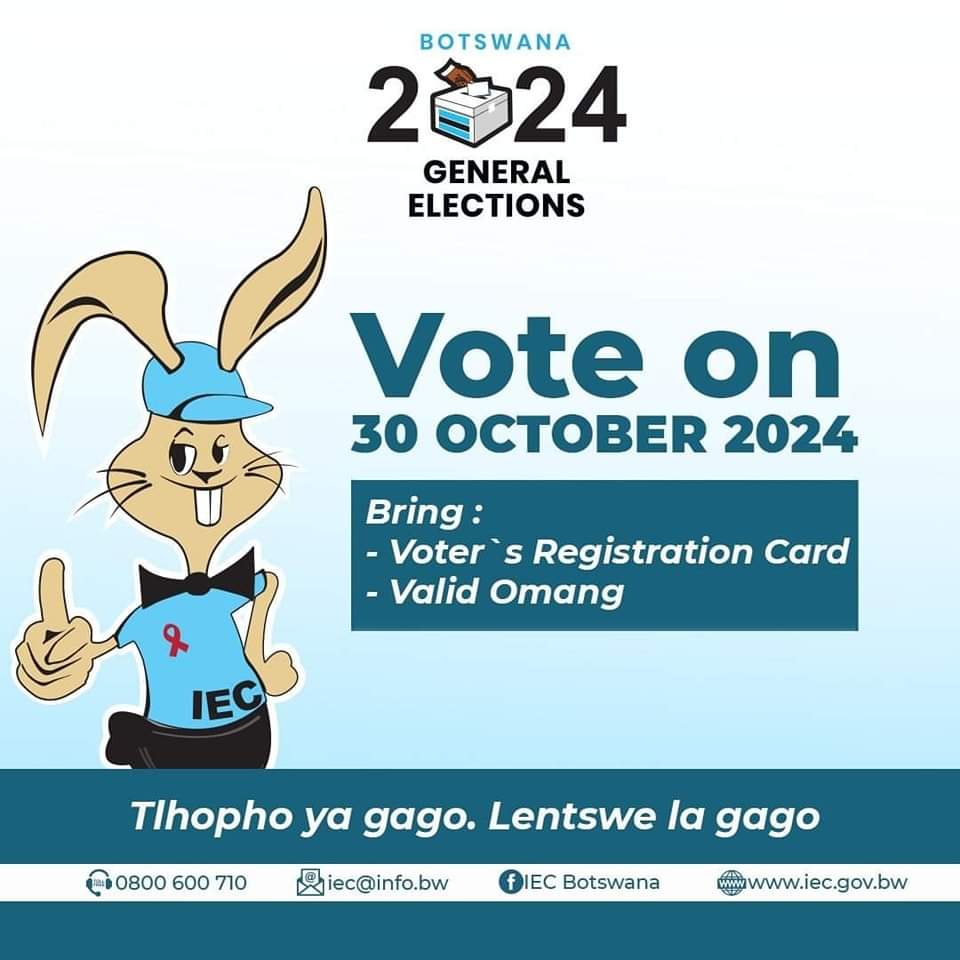On 30th October, Botswana will hold its 13th General Elections, marking a significant milestone in the nation’s democratic journey. This event, organized by the Independent Electoral Commission (IEC), is set to highlight Botswana’s commitment to democratic principles, transparency, and fostering civic engagement among its citizens. The IEC has been actively preparing to ensure a smooth election process, reflecting its dedication to a free and fair election experience.
Key Political Players and Parties
- Botswana Democratic Party (BDP): As the ruling party since independence, the BDP, led by President Mokgweetsi Masisi, is once again a central figure in this election. The BDP has built its campaign around economic growth, social welfare expansion, and job creation. Despite facing new challenges, the party is determined to retain its longstanding influence by appealing to a broad range of voters.
- Umbrella for Democratic Change (UDC): The UDC stands as the main opposition coalition, campaigning on promises of reform and change. Its focus on government accountability, anti-corruption measures, and a revamped economic approach resonates with youth and urban voters eager for alternatives.
- Botswana Patriotic Front (BPF): Established by former members of the BDP, the BPF has attracted support in regions like the Central District. With policies aimed at enhancing rural development and addressing the needs of underrepresented groups, the BPF seeks to expand its reach in 2024.
Main Election Issues
- Youth Unemployment: High youth unemployment rates remain one of the most pressing issues. Both the BDP and opposition parties are focusing heavily on job creation and skills development to address the concerns of young voters, who make up a significant portion of the electorate.
- Economic Diversification: As Botswana’s diamond reserves deplete, the need for economic diversification is more urgent than ever. Parties are presenting plans to expand into new sectors like renewable energy, tourism, and agriculture to reduce dependency on mining.
- Transparency and Governance: Corruption allegations have spurred demands for greater transparency. Opposition parties are leveraging these concerns to advocate for stronger anti-corruption measures and an overhaul of the current governance model.
- Healthcare and Education: Access to quality healthcare and education are essential concerns for many Batswana. While the BDP emphasizes improvements made under its leadership, opposition parties argue that there is still significant work to be done, especially in rural areas.
The IEC’s Role and Election Preparations
The Independent Electoral Commission (IEC) Botswana has been diligent in preparing for this pivotal election, demonstrating its commitment to transparency, efficiency, and civic engagement. The IEC has taken comprehensive measures to ensure the election process aligns with Botswana’s democratic standards, aiming for a seamless experience for both new and returning voters. Through public campaigns, the IEC has worked to engage citizens, emphasizing the importance of participation and equipping voters with necessary information.
Anticipated Voter Turnout and Electoral Process
Voter turnout in Botswana is generally high, and with the addition of first-time voters, this election could see record participation. The electoral process is robust, with security and transparency measures in place to foster trust among the electorate. On the day of the election, Botswana’s citizens will cast their votes for parliamentary candidates, which will ultimately decide the next president.
As Batswana prepare to vote on October 30th, the 2024 General Elections stand as a testament to Botswana’s enduring democratic values. This election has sparked energetic public discourse, driven by diverse party platforms and critical issues that reflect the evolving priorities of its citizens. With the IEC’s commitment to a fair electoral process, the 2024 elections may mark a defining moment for Botswana, as it seeks to balance tradition with new demands for progress and inclusivity.










